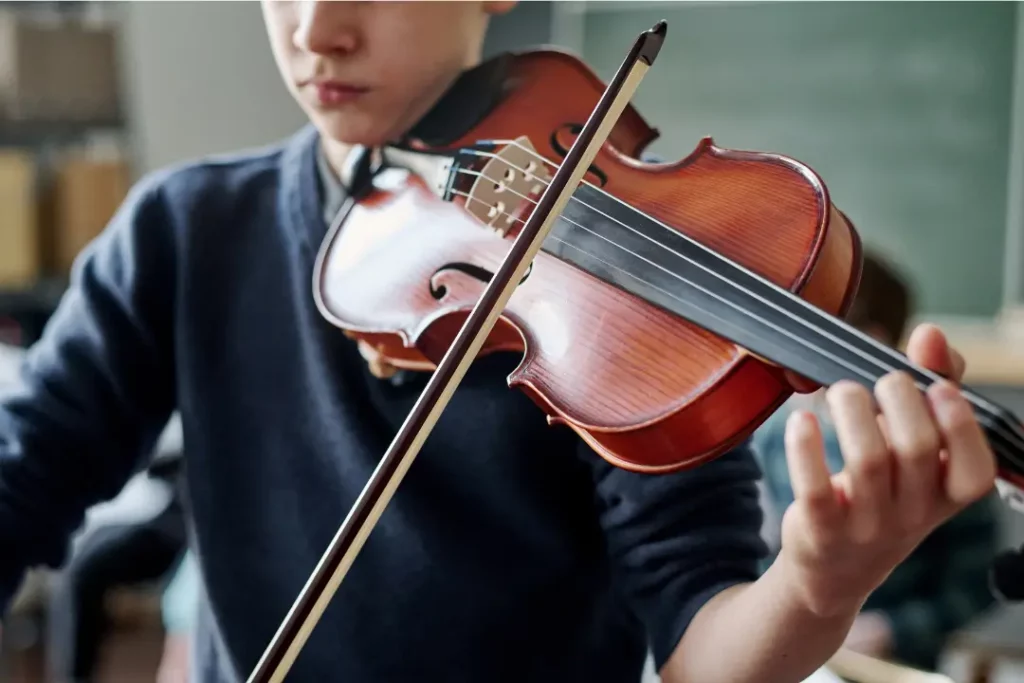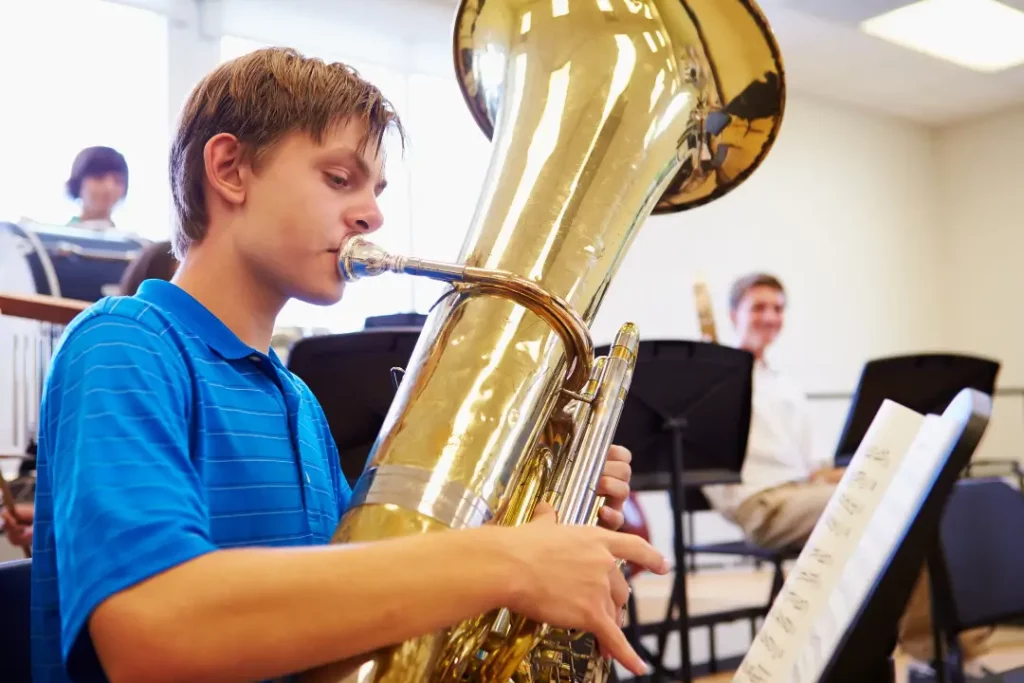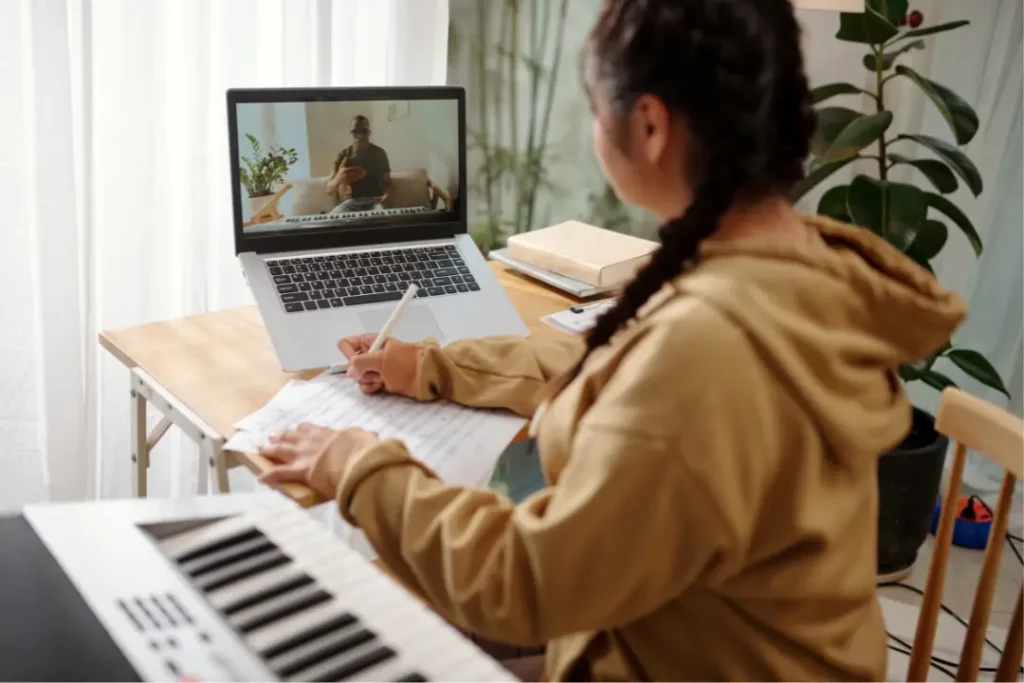
The college you choose to study music at can shape your future and career. Whether you sing, play an instrument, compose, produce, or want to teach, you want to find a program that will not only allow you to grow creatively but also prepare you for a successful career. Not all music programs are created equal, and this blog will highlight some of the best colleges for music.
Factors to Consider When Researching College Music Programs
Before we dive into a list, it is important to review the factors to consider when evaluating music programs. Just because a college’s music program is highly ranked does not mean it is the best fit for you. Here are some some questions to ask yourself as you start looking at colleges for music:
- What do you plan to specialize in? Different programs will be better for different majors. A college that is great for voice might not be the strongest for violin or music therapy.
- Where do you want to work when you graduate? Do you have certain organizations you hope to get a job with? Find out who hires the graduates from your programs of interest, and if no one you want to work with is hiring, it might not be the best program for you.
- What type of music education are you interested in? Some programs emphasize classical training, while others focus on contemporary or jazz.
- What types of performances do you want to engage in during college? Performance experience is essential for growth. Find out if the college offers ensemble participation, recitals, and/or public performances. Some schools are located in music hubs, also providing access to gigs, festivals, and collaborations.
- What kind of college experience do you want? Is it important to you to have a traditional college experience (sports culture, diverse clubs, Greek life, etc.) or do you want to be hyper-focused on your art? This will determine whether a traditional university with a strong music program or a conservatory might be a better fit for you.
- What is your budget for college? College is expensive across the board, but there are still broad differences in cost depending on the school. You will have to consider private vs. public and who offers aid and scholarships to find a good financial fit. Some of the biggest name programs also come with the largest price tags.
10 Best Colleges for Music

Here are some of the top colleges for music. Generally, they are also very selective programs with intensive prescreening, rigorous audition processes, and low acceptance rates.
The Juilliard School (New York, NY) – 10% acceptance rate
One of the most prestigious conservatories in the world, Juilliard is known for excellence in classical, jazz, and contemporary performance.
Curtis Institute of Music (Philadelphia, PA) – 4%
Offering full-tuition scholarships to all students, Curtis is an intimate and elite conservatory focused entirely on music performance and composition.
Manhattan School of Music (New York, NY) – 40%
MSM combines conservatory rigor with a vibrant city setting, offering top programs in classical, jazz, and musical theater.
Shepherd School of Music, Rice University (Houston, TX) – 10%
A conservatory within a top university, Shepherd is known for orchestral performance, opera, and chamber music.
Mannes School of Music, The New School (New York, NY) – 24%
Mannes blends classical tradition with a modern, collaborative approach in the heart of NYC.
Boston Conservatory at Berklee (Boston, MA) – 40%
A leader in classical, contemporary, and musical theater education, located in one of the nation’s most artistic cities.
Eastman School of Music, University of Rochester (Rochester, NY) – 36%
Eastman offers a conservatory-level experience with a focus on performance, composition, and pedagogy.
Oberlin Conservatory of Music (Oberlin, OH) – 25%
A top-tier music school with a strong liberal arts connection, offering one of the nation’s few double-degree options.
Bienen School of Music, Northwestern University (Evanston, IL) – 10%
Offers top-notch training in performance, composition, and musicology within a world-class academic setting.
Jacobs School of Music, Indiana University (Bloomington, IN) – 25%
One of the largest music schools in the U.S., Jacobs offers exceptional programs in nearly every area of music.
More Highly Rated College Music Programs with Higher Acceptance Rates
Additionally, here are some more music programs that are considered excellent and are highly rated but generally have higher acceptance rates.
Berklee College of Music (Boston, MA) – 54%
Focused on contemporary music, Berklee is ideal for students in jazz, pop, music production, and the business of music.
Peabody Institute, Johns Hopkins University (Baltimore, MD) – 51%
A historic conservatory offering classical, jazz, and modern music programs along with music education and recording arts.
Setnor School of Music, Syracuse University (Syracuse, NY) – 47%
Known for well-rounded offerings in performance, composition, and the music industry within a major research university.
Boyer College of Music and Dance, Temple University (Philadelphia, PA) – 59%
Offers excellent programs in performance, jazz, and music education, all in the culturally rich city of Philadelphia.
Belmont University School of Music (Nashville, TN) – Acceptance Rate Unpublished
Located in Music City, Belmont is especially strong in commercial music, songwriting, and music business.
The Hartt School, University of Hartford (Hartford, CT) – 75%
Hartt offers conservatory training in music, theater, and dance, with a wide range of degree options and a collaborative environment.
Ithaca College School of Music, Theatre, and Dance (Ithaca, NY) – 20–30%
Known for excellence in music education and performance, Ithaca offers personalized mentorship and strong alumni outcomes.
School of Music, Theatre & Dance, University of Michigan (Ann Arbor, MI) – 26%
One of the top public university music programs, with stellar training in performance, musical theater, and conducting.
Thornton School of Music, University of Southern California (Los Angeles, CA) – 20%
Located in the heart of the LA music scene, Thornton is a great choice for students interested in both classical and commercial music.
Herb Alpert School of Music, UCLA (Los Angeles, CA) – 25%
Offers a wide range of programs with a strong emphasis on performance, research, and global music traditions.
Department of Music, Emory University (Atlanta, GA) – Acceptance Rate Unpublished
A strong liberal arts music department, Emory supports performance and academic study with flexibility to explore other fields.
Tips for Applying to College for Music

- Start early. Music programs have more steps in the application process than the average college major, including prescreening uploads, and auditions, so you want to get started as early as you can to make sure you get everything in on time and get first pick of audition dates. Some programs will require you to meet the early action deadline because of the additional steps so keep an eye out for that so you do not miss the deadline to apply.
- Secure strong recommendations. Make sure you have multiple people who can speak well to your musical ability and work ethic.
- Secure a mentor to prepare for recordings/auditions. Make sure you have a music teacher or someone else in the music industry to help you choose your pieces, build a portfolio (often required for composition or production), and rehearse with you.
- Write a strong music resume, essays, and/or artistic statement. Many colleges will have a written component to your application or prescreening, including but not limited to a music resume, supplemental essays, or artistic statement. Be sure to have someone help you write and edit these documents to make sure they are perfect. Need help with this? Connect with one of our college advisors to learn more about services at HelloCollege!
FAQs About the Best Colleges for Music
What are the best colleges for music education?
Top programs include Indiana University (Jacobs School of Music), University of Michigan, Berklee College of Music, Eastman School of Music, and University of North Texas.
What are the best colleges for music production?
Leading schools for music production include Berklee College of Music, NYU (Clive Davis Institute), USC (Thornton School of Music), Full Sail University, and Belmont University.
What are the best colleges for musical theater?
Top MT programs include University of Michigan, Carnegie Mellon, NYU Tisch, CCM (University of Cincinnati), and Boston Conservatory at Berklee.
How do I make a music portfolio for college?
Most music portfolios include recorded performances, sheet music, a repertoire list, and sometimes original compositions or production samples. Follow each school’s guidelines closely.
Do music programs require auditions?
Most conservatories and university music programs require live or recorded auditions, while many music-related majors (like business or production) require portfolios instead.
Conclusion
The journey to finding the best colleges for music is as unique as the individuals embarking on it. The list above is far from inclusive of all the strong programs out there, and the perfect fit for you may not be listed.
By evaluating key criteria, researching programs, and aligning choices with personal goals, you can identify the program that will set you on the path to success. The best college music program for you is one that not only challenges and educates but also inspires creativity and equips you to make a meaningful impact in the music world.








